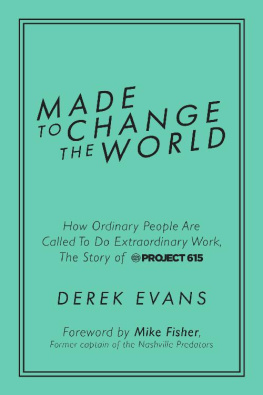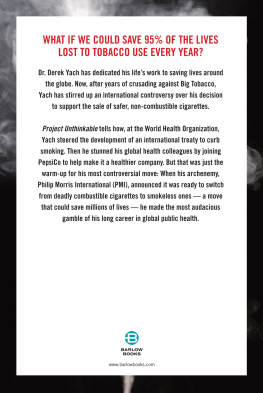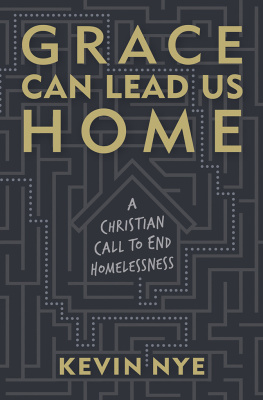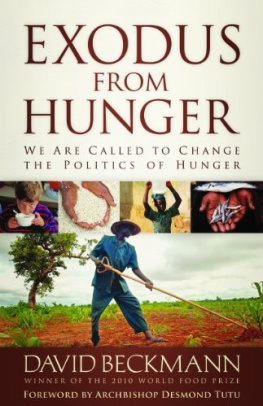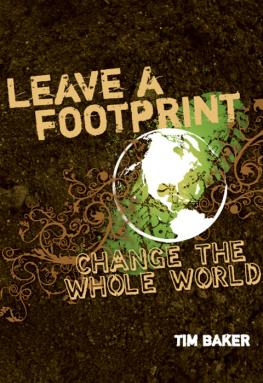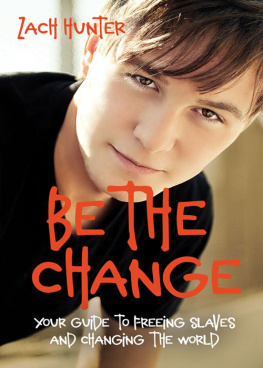A POST HILL PRESS BOOK
Made to Change the World:
How Ordinary People Are Called To Do Extraordinary Work,
The Story of Project 615
2019 by Derek Evans
All Rights Reserved
ISBN: 978-1-64293-141-9
ISBN (eBook): 978-1-64293-142-6
Cover design by Derik Hobbs
Interior design and composition by Greg Johnson, Textbook Perfect
No part of this book may be reproduced, stored in a retrieval system, or transmitted by any means without the written permission of the author and publisher.

Post Hill Press
New York Nashville
posthillpress.com
Published in the United States of America
CHAPTER 5
Offer Hope
Only a life lived for others is a life worthwhile.
ALBERT EINSTEIN
N ext door to the old converted factory where Set Free held their church services and housed the men coming through the homeless recovery program was a two-story brick church that had sat boarded up and abandoned since the 1980s. Some of the homeless men living in the dormitory had pushed in and started sleeping there, so one day, Matt and I snuck in to check out the space. Every room was jammed with dusty furniture and stacks of boxes filled with worn-out Bibles, faded photographs, old hymn books, church directories, Christian books, church bulletins, and secretary files dating back to the early 70s. It was like a time capsule that told the story of a church once filled with hundreds of faithful congregants that had succumbed to the same poverty and blight that took hold of the surrounding neighborhood.
Down a dark and narrow flight of stairs was an eight-hundred-square-foot space that the church had probably used for Sunday school. There was no electricity or heat. We could hear rats scurrying across the cement floor. It was dark and dirty and cold. There was garbage everywhere and it smelled awful. It wasnt exactly a dream space, but Matt and I didnt see a dirty, dingy basement. We saw an opportunity to grow our company and set up a print shop and office.
The church, as well as the Set Free dormitory next door and the house across the street where Pastor Marty lived with his family, belonged to a retired pastor. He had moved away decades ago and rarely ever came around. The church had been abandoned for so long, we figured he might not even notice if we set up our printing equipment in the basement. When we told Pastor Kenny and Pastor Marty what we were thinking, their attitude was basically: Project 615 has been supporting our mission for the past two years; if you guys need this space to grow the business and hire our men, sure, well help you sneak in and set up shop. Set Free pastors are not buttoned-up seminary guys. Theyre not averse to breaking a few rules. Their mindset was basically: better to beg for forgiveness later than to ask for permission now.
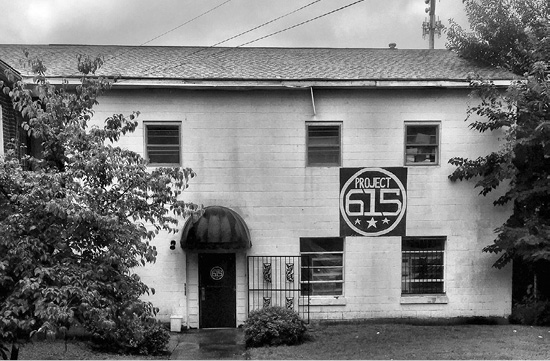
The abandoned church next door to Set Free that was Project 615s first headquarters. It was formerly Woodcock Baptist Church, which had thrived in the 1960s and 1970s before sitting empty and boarded up for decades.
They let us run extension cords between the two buildings so we could hang some lights and we began clearing out the basement. As word got around that we had pushed into the church and were trying to set up a screen-printing studio in the basement, we started to get guys from the Set Free dormitory coming by and offering to help us out. One guy would come in, and then another, and, pretty soon, we had a handful of men working for us. We had no money, so we were paying them in cigarettes, McDonalds, and their favorite energy drinks. A lot of these guys were good with their hands, so they were helping us knock down walls, build shelves, clear out furniture and old junk, and set up the press. Up to then, we had been outsourcing everything except our designs, but now we were finally in a position to bring everything, from printing to shipping, in-house. We started teaching the guys the art of screen-printing even as we were learning it ourselves, so there was a lot of trial and error in those early months.
By the end of that year, Matt and I were running on fumes. For two and a half years, we had been burning the candle at both ends, trying to build both businesses and stay true to our day-to-day mission of helping the men at Set Free. So when we were invited to join a mission trip to Haiti, it was more than just an opportunity to expand the Project 615 mission beyond homeless outreach in our backyard, it was a chance to recharge our batteries and find new inspiration.
We had kept in touch with one of the pastors from Set Free California. Pastor Kirk was close to our age, so we were able to connect with him a little more than some of the other pastors. One day, I got a text from him saying that he was traveling to Haiti to bring Christmas to orphaned children and wondered if Matt and I wanted to join him on the trip. We knew immediately that we had to go. There was no question. To fund the trip, we came up with the idea of designing a limited-edition T-shirt and donating 100 percent of the profits towards this mission of bringing Christmas to Haitian orphans. Take Action, Send Love was our very first campaign and, looking back, it was very amateur and very broken. It wasnt that well-planned and we didnt market it well, but we probably sold 150 shirts and raised a little under $3,000enough to fund the trip and fill five suitcases with toys and candy for the children.
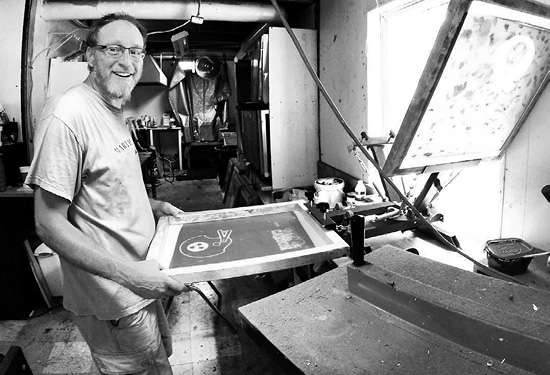
Project 615s mission is to hire people recovering from homelessness, addiction, and mental illness. We hired men who were living at Set Free Church and trained them in the art of screen-printing. They would walk next door and work in our production department. This guys name is Chris Dugger. A Nashville native, Chris found himself battling a drug addiction that led him to being homeless.
On December 26, we boarded a plane bound for Haiti. This was our first time ever being out of the country, so Matt and I were both experiencing the same sense of nervous anticipation. It was both exciting and terrifying stepping off the plane in Port-au-Prince. I remember standing outside the airport with Matt, huddling around all our suitcases filled with Christmas gifts for the children, waiting for Pastor Kirk and our guide to arrive. It was blazing hot and the locals were staring at us. We were two white guys from the Midwest in baseball caps and backpacks; we didnt exactly blend in. After about ten minutes, we started to notice that there were all these big Haitian men hanging around outside the airport staring at us too. We werent sure if they were the taxi drivers, Haitian mafia, or members of a street gang. After another twenty or thirty minutes with no sign of our guide, Matt and I were beginning to feel genuinely concerned for our safety.
We had no idea what to do. I had emailed ahead with our flight information, but now that we were actually in Haiti, we realized that we had no one we could call. By this point, a couple of the men had begun calling out to us in broken English. As they were slowly pressing in on us, asking for money and where we were going, Matt and I were drawing closer and closer togetherto the point where we were practically hugging each other. Then all of a sudden, we hear the wah-wah of a horn and a friendly voice calling out, Whats up, guys? It was Pastor Kirk, leaning out the passenger window of a brightly painted tap tap, one of the (mechanically dubious) trucks and buses that serve as shared taxis in Haiti. All we could think was: Thank God.
Next page
